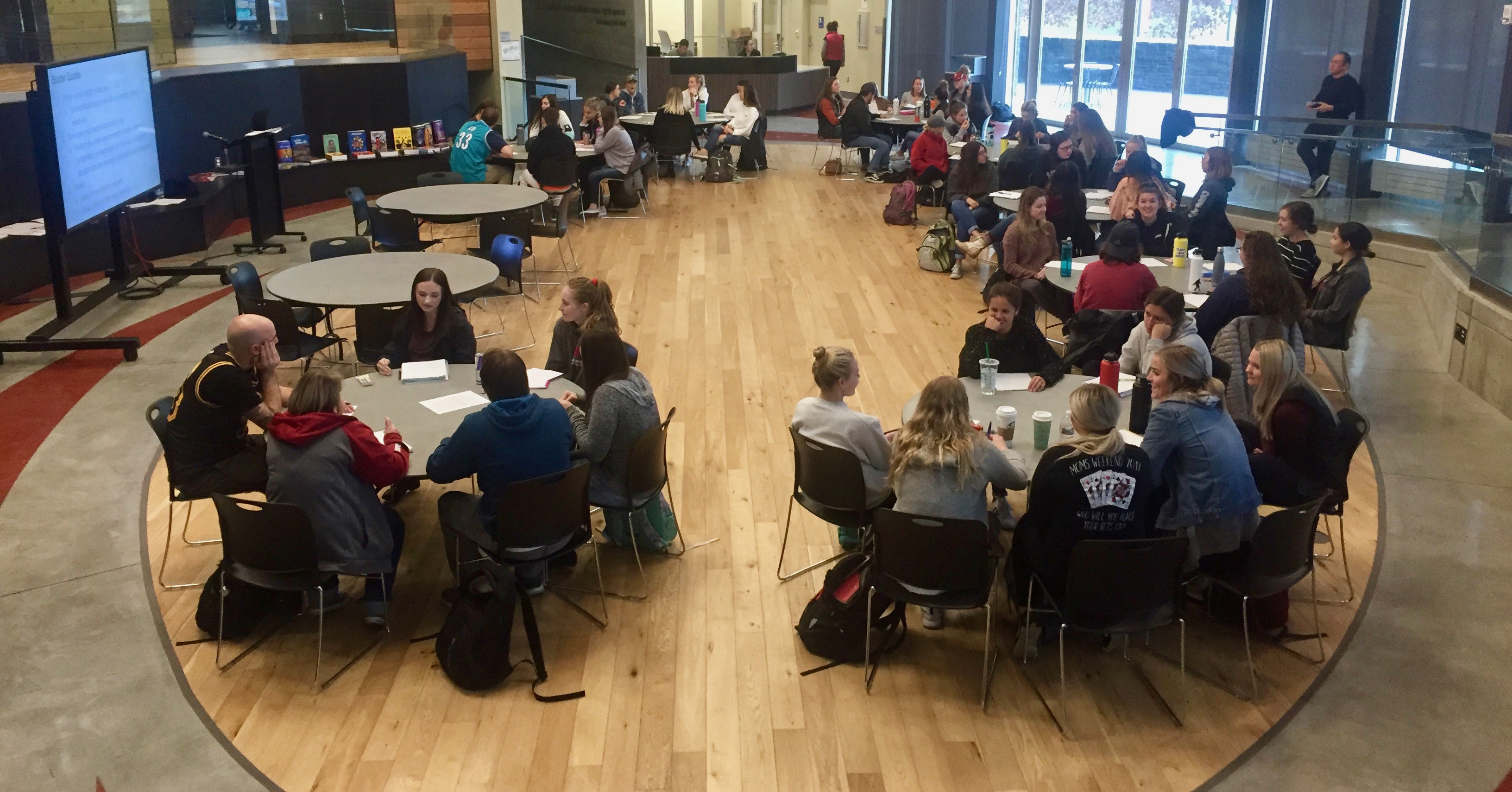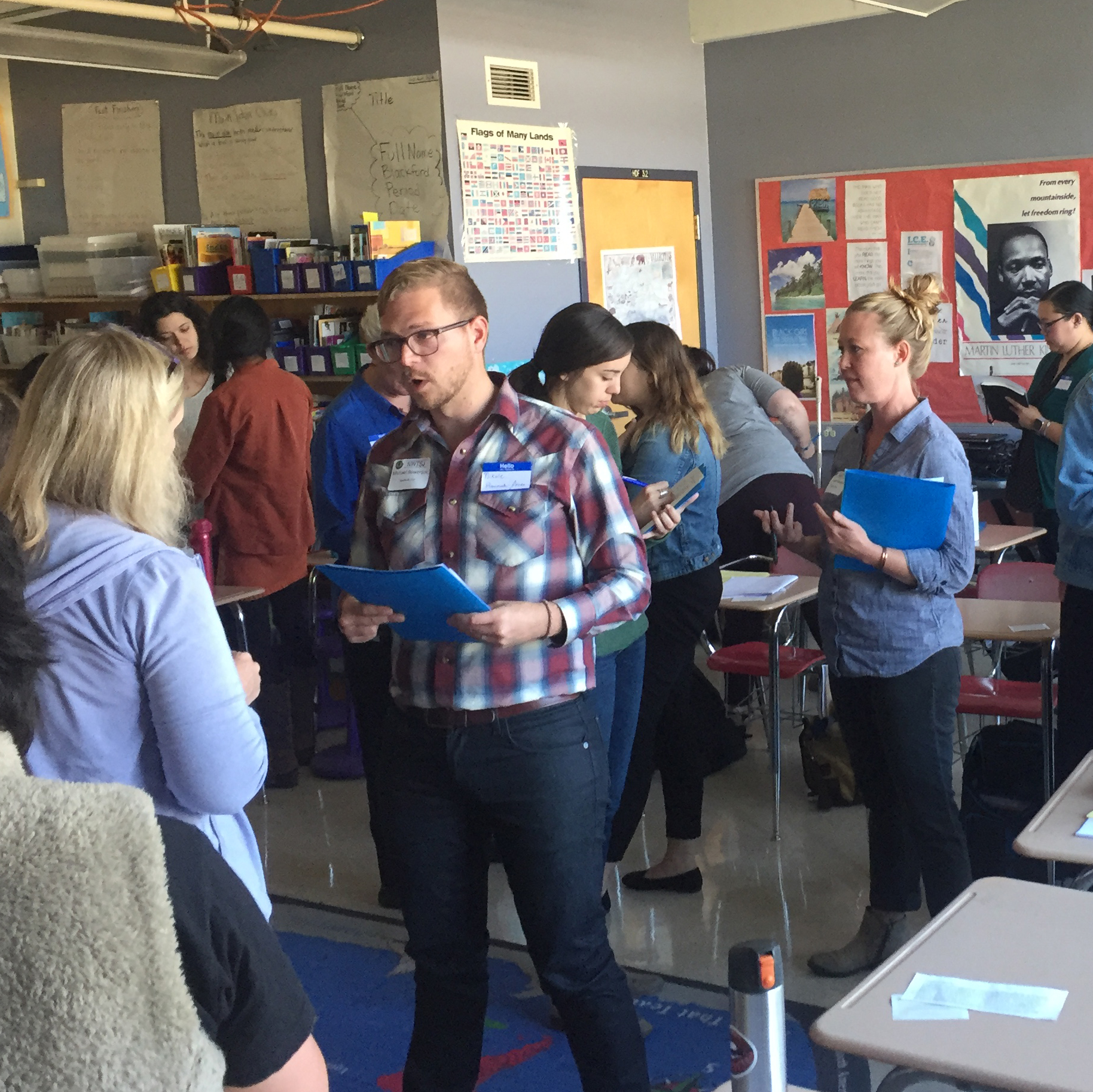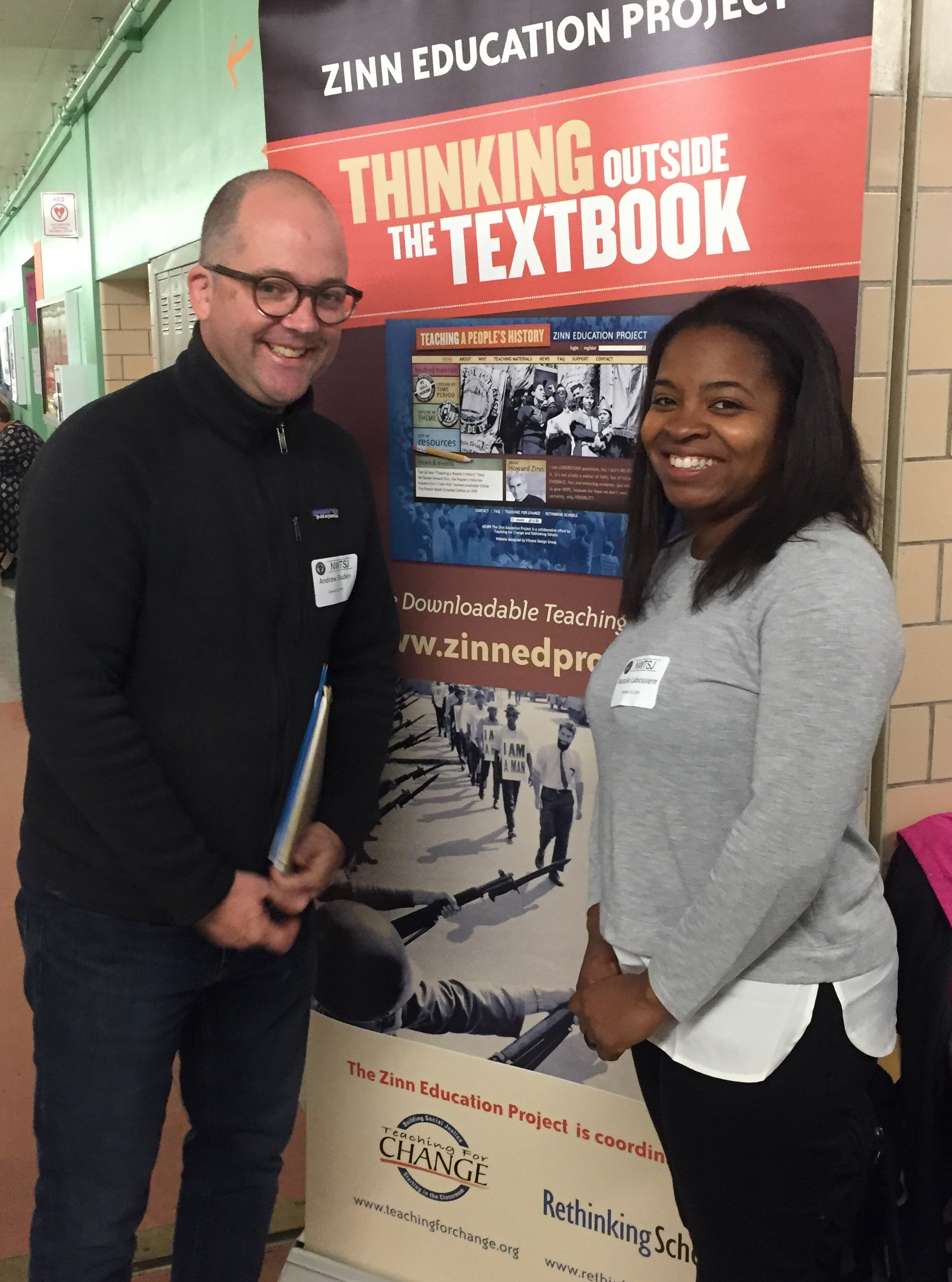
October was a busy month for the Zinn Education Project in the Northwest, bringing people’s history workshops to teachers in Lincoln County Schools on the Oregon coast, to the Northwest Teaching for Social Justice Conference in Portland, and to preservice teachers at Washington State University in Pullman, Washington.

Workshop participants in role play.
At Lincoln County and WSU, Teacher Organizer Ursula Wolfe-Rocca introduced participants to a new Zinn Education Project role play, “Deportations on Trial: Mexican Americans During the Great Depression.” The lesson reveals the massive, yet largely overlooked, deportations of the 1930s, when adults, children, and the elderly, immigrant and U.S.-born, citizen and noncitizen, longtime residents and temporary workers, became the targets of a campaign of forced relocation, based solely on their perceived status as “Mexican.” Workshop participants role played a trial seeking to understand how the illegal deportations happened and who was responsible for the damage they wrought.
Zinn Education Project teacher leaders had a big presence at the 11th annual Northwest Teaching for Social Justice (NWTSJ) Conference. Tim Swinehart led a workshop on the Zinn Education Project lesson, “Teaching Blockadia: How the Global Movement Against Fossil Fuels Is Changing the World,” a role play that highlights the hopeful struggles of anti-fossil fuel activists around the world. Natalie Labossiere co-led a panel discussion, “Nurturing Black Children: Black Mothers Speak About Raising and Teaching Black Lives in White Spaces.” Camila Arze Torres Goitia led educators in “Moving Beyond Gender Boxes,” while Kim Kanof focused on the experiences of her Somali refugee students in her workshop, “Somali Student Voice in a Social Studies Classroom.”
Ursula’s workshop at NWTSJ highlighted the Zinn Education Project’s Teach Reconstruction campaign, leading participants through a new lesson by Adam Sanchez and Nqobile Mthethwa, “When the Impossible Suddenly Became Possible: A Reconstruction Mixer.” The lesson addresses the late 1860s, a period of incredible social ferment, led by oppressed people — African Americans, women, labor, and others — to reconstruct U.S. society. The mixer role play introduces participants to many of the leaders of these movements for racial, economic, and gender justice, while highlighting their attempts — and failures — to build alliances.
 Here are some of the responses we received from participants about recent Zinn Education Project workshops:
Here are some of the responses we received from participants about recent Zinn Education Project workshops:
Great lessons. Great material. Great modeling.
I learned about Mexican Repatriation, which I’d never even heard of!
This is what PD should be. Thank you!
I am always looking for activities for history. I will be using these techniques in my classroom.
These strategies and activities are all higher level thinking projects and encourage students to think critically.
I learned how important multiple perspectives are, methods to get students engaged and thinking at a deeper level.
I learned about how helpful and beneficial mixers can be for students and for myself as a teacher to learn more about a certain subject.
I learned how multiple social movements — not just African Americans — were in full effect following the Civil War.
These are materials I will use.
If your school district or organization is interested in sponsoring a workshop, please contact us. Learn about the workshop options and submit a request.






Twitter
Google plus
LinkedIn